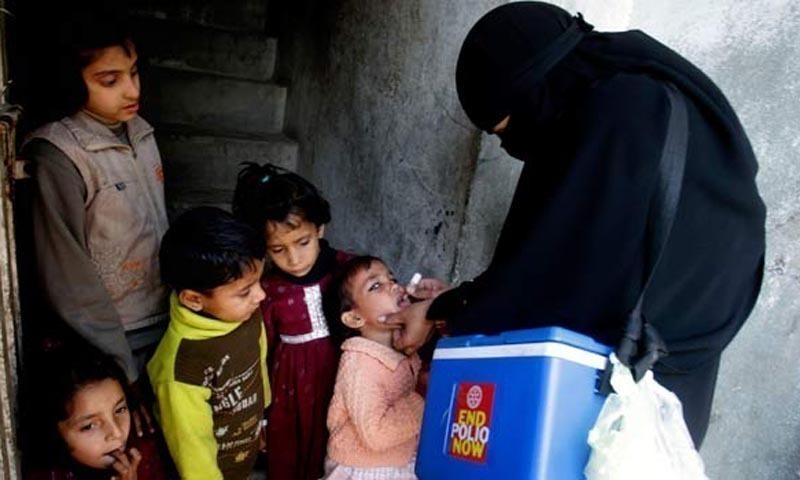ISLAMABAD: Prime Minister Imran Khan has called a meeting tomorrow (Wednesday) to review the country’s polio situation, with cases of the disease on the rise.
A policy will be devised at the meeting to raise awareness, particularly in Khyber Pakhtunkhwa – where 70pc of the current cases have been reported – to control the spread of the poliovirus.
A total of 53 cases of polio have been reported across the country this year, compared to 12 in 2018 and eight in 2017. So far, 41 were reported from KP and its tribal districts, five from Punjab, four from Balochistan and three from Sindh.
Chief secretaries of all the provinces and representatives of international donor agencies, the World Health Organisation, Bill and Melinda Gates Foundation, Rotary International, the armed forces and others will attend the meeting. The KP chief minister has been specially invited because of the increase in polio cases in the province.
During a nationwide polio vaccination campaign this April, students from a school in Mashokhel were taken to the Hayatabad Medical Complex in Peshawar claiming they had an adverse reaction to the polio vaccine.
Provincial chief secretaries, international organisations’ representatives to attend
The incident was later revealed to have been staged to disrupt the vaccination campaign, and all the children were unharmed. Suspects were arrested and legal action was taken against them.
More recently, traders from Bannu announced in August that they would boycott the polio vaccination campaign to protest the government’s taxation policy. After the provincial government and polio programme’s efforts, some traders’ unions disassociated themselves from the announcement.
An official from the Ministry of National Health Services (NHS) who asked not to be named said that community resistance has become a significant reason for the rising polio cases.
“The only solution is to address the community’s concerns. In the past, people used to claim that vaccines are haram, but the recent announcement from Bannu’s traders showed that people have started using the polio vaccination campaigns as a pressure tool.
“We need to convince them that it is beneficial to their children rather than the state, and parents should be worry about vaccinating their children the same way that they try to feed their children,” he said.
He said communities in some areas announce that they will boycott polio vaccination campaigns and will not let vaccination teams enter their localities until they receive water or gas supply. The official said the focus needs to be changed, and a situation analysis should be carried out.
Prime Minister’s Focal Person for Polio Babar Bin Atta said that Wednesday’s meeting will consider how a community can be informed of this issue.
“In 90pc of reported cases, our investigations show that children were not vaccinated because their parents either hid the child on the day of the polio campaign or falsely marked their children’s fingers,” he said.
To a question, Mr Atta said that FIRs used to be registered against people who refused to vaccinate their children.
However, we have decided that people should be persuaded that the polio vaccine is beneficial to them and they should be more eager than the government to vaccinate their children, he said.
The situation in terms of reported cases was better in October 2017 than it is today, he admitted, but the “Independent Monitoring Board (IMB) on Polio said that Pakistan should not continue fooling itself by believing that it has done the job.”
The IMB works on behalf of international donor agencies and issues biannual reports on countries’ performances. In November 2012, it recommended imposing travel restrictions on Pakistan that were finally implemented on May 5, 2014.
Polio is a highly infectious disease caused by the poliovirus that affects mainly children under the age of five. It invades the nervous system, and can cause paralysis or even death. Although there is no cure, vaccination is the most effective way to protect children from polio.
Each time a child below the age of five is vaccinated, their protection against the virus increases. Repeated immunisation has protected millions of children from polio, allowing almost all countries to become polio-free.
Published in Dawn, August 20th, 2019










































